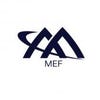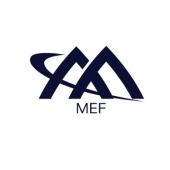Unlocking Faster Digital Transformation: Why Industry Standards Matter to the NaaS Experience
MEF and TM Forum initiatives to standardize APIs will help enterprises and service providers unlock the full potential of NaaS. Such initiatives enable enterprises to reap the benefits of NaaS by allowing them to manage their entire network infrastructure through a single platform, with seamless automation across every stage of the service lifecycle.

In the fast-evolving world of enterprise networking, the push towards seamless, efficient, and responsive services has never been stronger. Network-as-a-Service (NaaS) offerings have emerged as a powerful option, promising on-demand access to a range of network capabilities, from connectivity and multi-cloud to security and application assurance. However, to realize the full potential of NaaS, two key factors must be addressed: the lack of industry-wide standardization across the automated services ecosystem and the impact of proprietary API implementations that can’t scale with the requirements of today’s enterprises.
Traditionally, enterprises have navigated a complex web of service providers, cloud providers, data centers, and technology suppliers to access network services. Each of these players often utilizes proprietary APIs, which creates a siloed environment that impacts seamless integration and automation.
The lack of standardization poses several challenges. Manual processes for integrating and configuring services across different vendors significantly slows down service deployment for providers, translating to longer wait times for enterprises seeking to leverage new NaaS offerings. The fragmentation of the NaaS landscape creates confusion for enterprises. With a multitude of service providers offering solutions with varying functionalities and incompatible APIs, enterprises struggle to compare offerings and identify the best fit for their needs. Additionally, custom development and integration efforts for each vendor significantly inflate costs for service providers, which is ultimately passed on to enterprises.
NaaS Collaboration and Standardization
Industry-wide collaboration is vital for achieving standardization across the network services ecosystem. Industry leaders MEF and TM Forum are working together to break down silos and pave the way for a more efficient and automated NaaS experience. Recently, the two organizations announced a groundbreaking collaboration to unify APIs and service models for NaaS offerings.

(Credit: MEF and the TM Forum)
This joint initiative seeks to streamline automation for NaaS implementations, offering significant benefits for the entire network services ecosystem while improving the enterprise experience. By aligning MEF’s extensive Lifecycle Service Orchestration (LSO) automation APIs to TM Forum’s Open Digital Architecture (ODA), the collaboration aims to deliver a powerful integrated automation solution to advance digital services for enterprises. Benefits to enterprises include:
Faster Automation: Standardized APIs enable seamless communication and automation across the entire service lifecycle. Enterprises can order, provision, and manage their NaaS services through a single, automated platform, significantly reducing manual intervention and accelerating service delivery.
Reduced Costs: Standardized solutions eliminate the need for custom development for each vendor. This translates to lower development and integration costs for service providers, leading to potentially more competitive pricing for enterprises.
Increased Innovation: Streamlined automation allows for quicker deployment of new NaaS services by both service providers and enterprises. Providers can bring innovative solutions to market faster, while enterprises can experiment with new capabilities, adapt to evolving market needs, and gain a competitive edge through faster innovation cycles.
The Road Ahead
The importance of standards-based automation and industry collaboration in the automated NaaS ecosystem cannot be overstated. Enterprises expect the same agility in network services from NaaS that they experience with cloud, driving the need for seamless integration across the entire ecosystem. The MEF initiative represents a significant step toward achieving this goal, creating a more standardized and automated NaaS ecosystem. This ecosystem depends on interoperability both between all service provider partners (east-west) and within each provider's systems (north-south). MEF's widely adopted LSO API product and service schemas are crucial to meeting these expectations, enabling NaaS services to flow seamlessly across the entire ecosystem with cloud-like speeds.
Enterprises can also play a vital role in driving the adoption of standardized APIs. Actively engaging with service providers who are committed to standardized solutions sends a clear message about their priorities. Embracing unified standards and staying informed about the latest advancements allows enterprises to leverage new solutions and stay ahead of the curve.
NaaS promises a world where enterprises can manage their entire network infrastructure through a single platform, with seamless automation across every stage of the service lifecycle. By working together with industry leaders and embracing standardized APIs, enterprises and service providers can unlock the full potential of NaaS and accelerate their digital transformation journey.
For more information on MEF and TM Forum initiatives, visit their respective websites and consider participating in ongoing standardization efforts. Your engagement could be the key to unlocking new efficiencies and opportunities in the network services ecosystem.
(Editor’s note: This article is part of our regular series of articles from the industry experts at MEF.)
Pascal Menezes, CTO at MEF, is a seasoned expert with a laser focus on cutting-edge technologies. His areas of expertise encompass SD-WAN, SASE, cloud-scale architectures, real-time media networks, SDN, NFV, and LSO. With a decade at Microsoft Skype for Business Global Carrier Group and a track record of success in five startups, Pascal has earned global thought leadership awards, presented at renowned events, and contributed to industry standards in the IETF, MEF, and Broadband Forum (MPLS), holds 30+ patents. Pascal hosts MEF's Executives at the Edge podcast.
See his collection of Network Computing articles here.
About the Authors
You May Also Like






